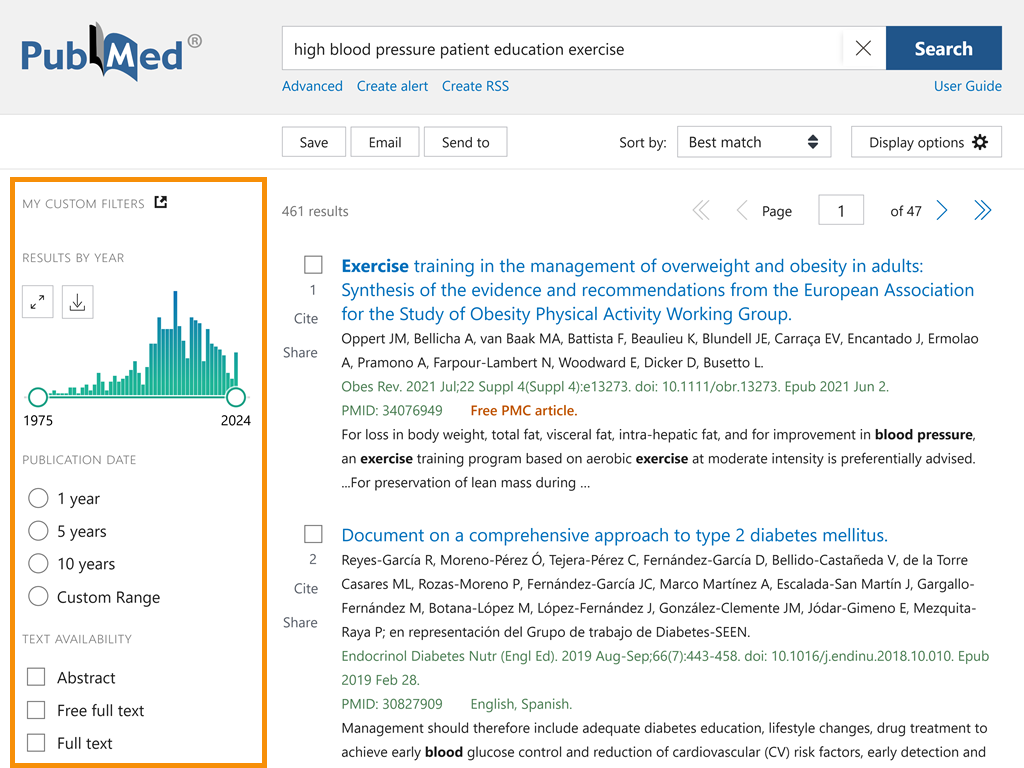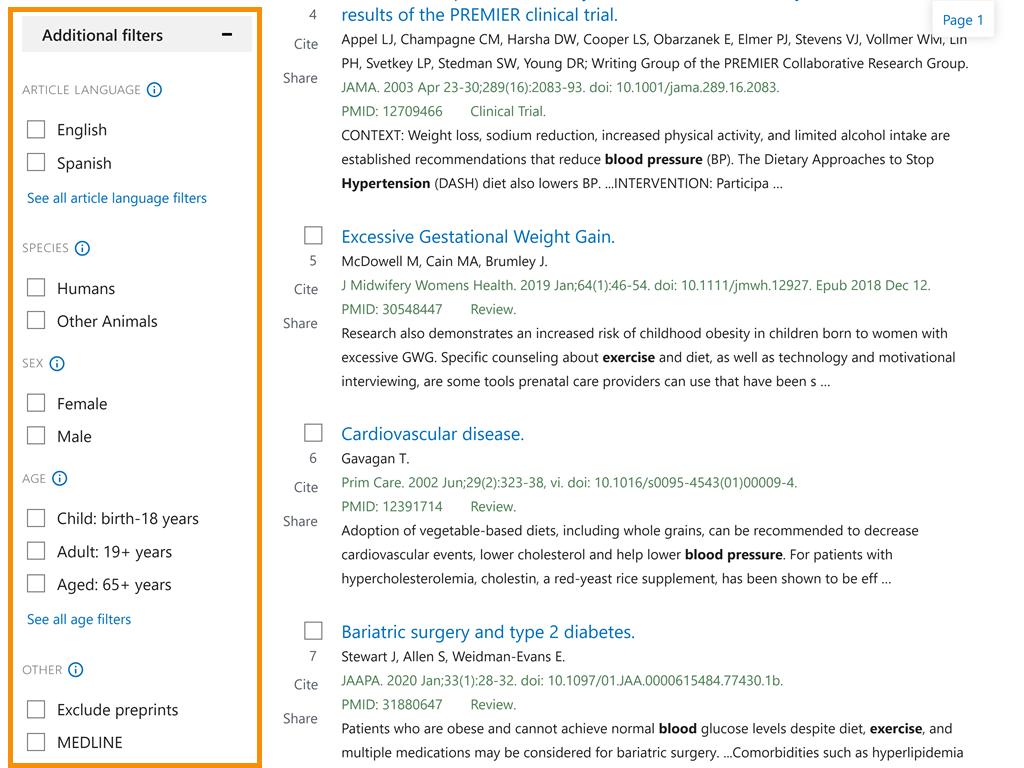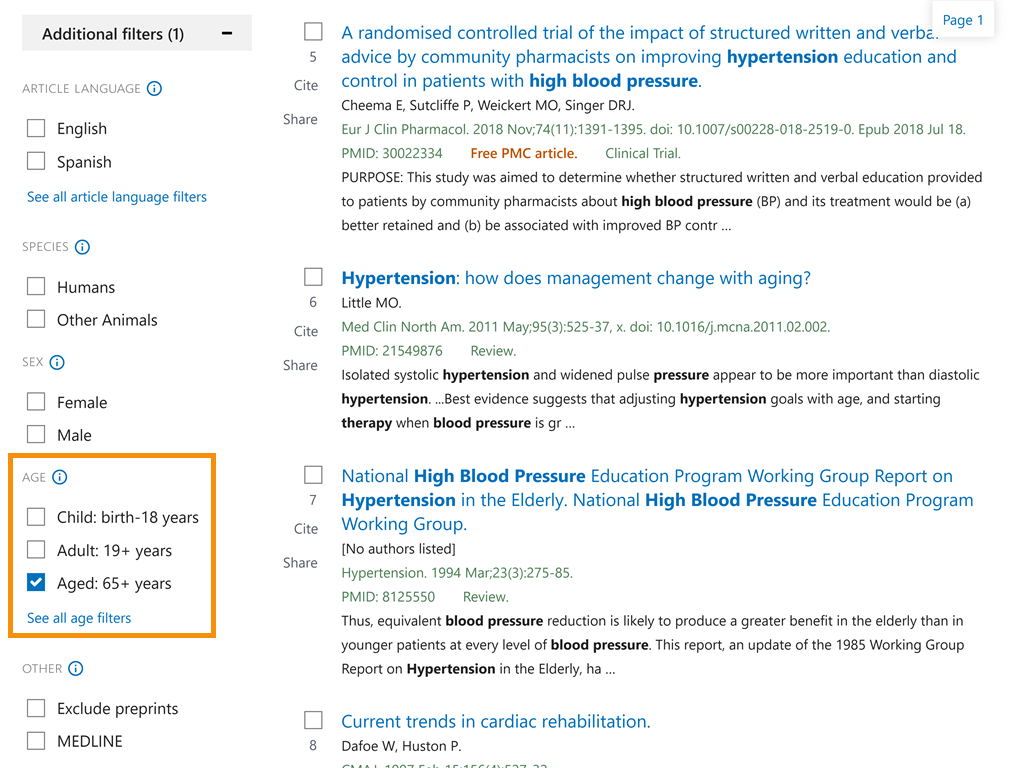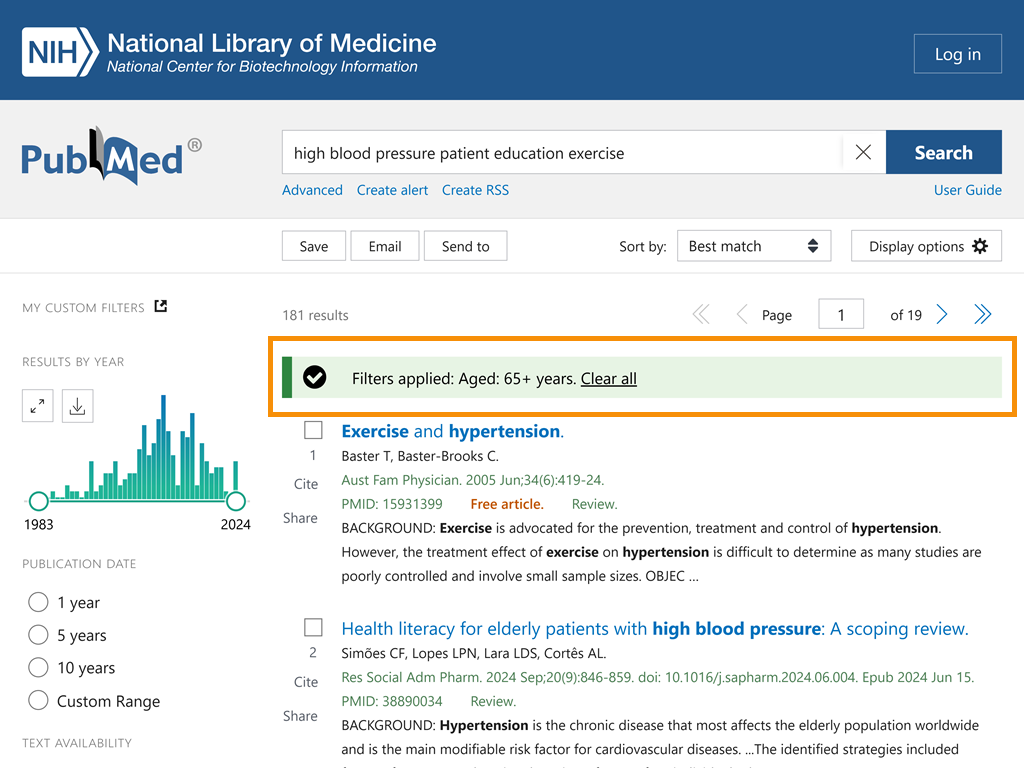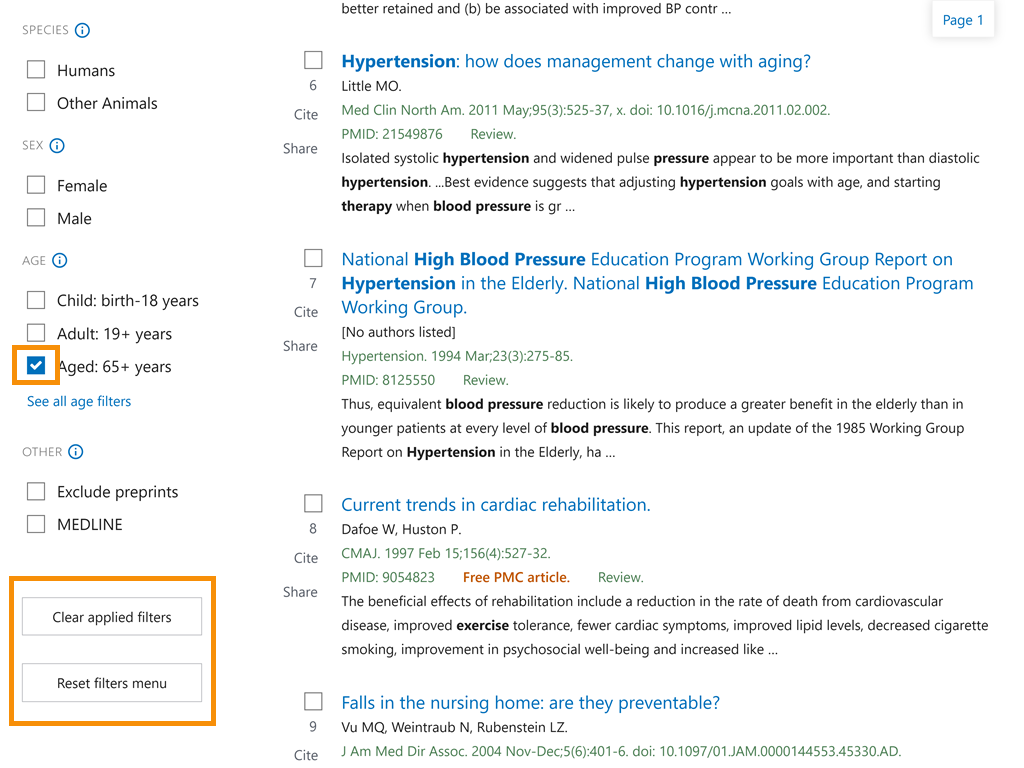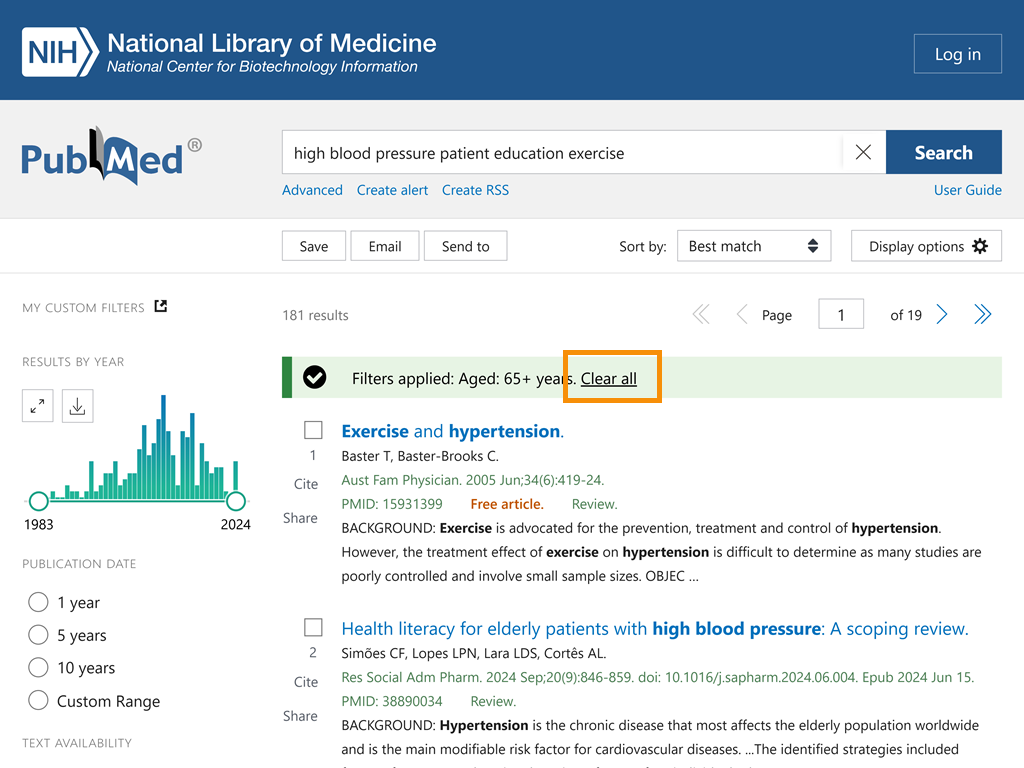Use PubMed to Find Relevant Articles
Filter PubMed Search Results
Using filters can help narrow your search to the most relevant results. PubMed provides filters that are useful for research in medicine, nursing, and related fields.
Scenario
To better answer our clinical question, let’s go back to our results and filter our search. We will apply filters to our search on patient education for patients ages 65 and older with hypertension.
Additional Filters
In order to view all of the filter options, scroll down the page and click on “Additional filters.”
We will use the Age filter. Note that using the Age, Sex or Species filters in PubMed will eliminate records that have not been indexed.
We might consider filtering by Publication date for some research topics, but for this topic, it would not be appropriate to eliminate earlier literature. Older research on the effect of education on patient behavior might be relevant today.
Age Filter
An important part of our research question is the age of the patients: 65 and older. Narrow the results to that age category by using the "Age" filter to select "Aged: 65+ years."
You will be returned to your search results, and your selected Age filter is now applied. Notice that we have a manageable number of results now, which we should explore.
Clearing Filters
To remove a filter, deselect the filter option. You can also remove all filters by clicking on "Clear applied filters." To reset the filters menu to the default settings, click "Reset filters menu."
